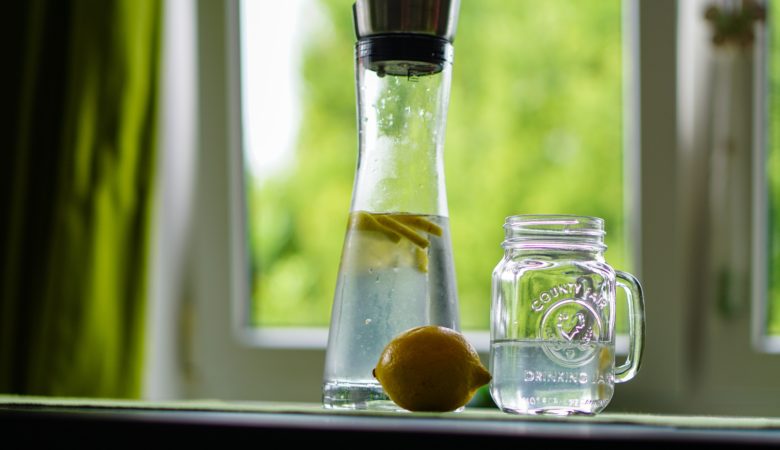Do Detoxes Really Work? Get the Low-Down on Resetting Your System the Right Way

It’s no secret that a lot of icky stuff flows through our body. The air we breathe, the surfaces we touch throughout the day, and even some of the food we eat contain germs and bacteria that enter our system. Some of that damage we do to ourselves with junk food and bad habits like smoking. Other toxins that enter our system, like pollution, are unavoidable. Either way, imagining all that nasty stuff building up in your system can be unsettling. It’s only natural to want to hit some sort of a reset button and get your body back on the straight and narrow.
If that sounds like you, you’re not the only one. Detox diets have become extremely popular in recent years. To some extent, they can be beneficial. That said, people who jump at the chance to eliminate toxins from their body should be cautious. Approached the wrong way, you can end up doing severe damage without meaning to. Here’s what you need to know about doing a detox the right way.
What Is a Detox Diet?
For those who may not be aware, a detox diet is one of a variety of meal plans designed to cleanse your body inside and out. Detox diets begin with fasting to allow your body the chance to eliminate any hazardous substances. Once you’ve fasted, detox diets recommend a strict (and often very light) regimen of healthy food, like fruits, vegetables and water. Some detoxes end there; however, some add other nutritional elements like supplements and different teas and herbs.
Depending on the kind of diet you’re considering, a detox diet may have some incredible benefits. They can enable weight loss, promote organ health (by giving them a break from processing food) and toxin elimination. They may also improve circulation and the number of nutrients in your body. That sounds wonderful, but if done improperly, a detox diet can prove to be a severe detriment to your health.
Be Very Careful About Fasting
Unless it’s prescribed by your medical professional, fasting isn’t necessarily something you should do regularly. Those people who advocate for fasting believe depriving your body of food for 1 to 3 days is healthy. When your body stops taking in food, advocates say it’s allowed to expel everything inside and start over. That’s not entirely true.
When you fast, it doesn’t take long for your body to realize that it’s not getting the same amount of food and water it’s used to. When that happens, your body doesn’t continue on as usual; it begins to work overtime, conserving what vitamins and minerals are still inside you.
You might see some quick weight loss when you start your fast, but the material burned off is temporary. What’s more, it’s mostly water and carbohydrate weight, not actual fat stores. In other words, if you’re using fasting as a means of kickstarting weight loss, you might discover that the opposite is true, and fasting makes it more challenging to lose weight.
This isn’t to say all fasts are ineffective. Intermittent fasting, for example, has great effects over time! It’s all about adapting your body to a new level of metabolic flexibility so it can efficiently process food. If you want lasting results, you need to fast the right way—not just cease eating!
Potential Side Effects of a Detox Diet
If you’re determined to start a fast, be sure you consider the potential side effects that could arise when you begin a detox.
- Caloric Restriction: Some people tout the benefits of cutting back on calories. That said, when you’re restricting your caloric intake, you could stop getting valuable minerals and nutrients your body needs. Be sure you’re consuming valuable calories—items rich in essential nutrients, like leafy greens. Supplementation is also a good idea during a detox diet.
- At-Risk People: If you have a chronic health problem, a weakened immune system, or are above the age of 60, you shouldn’t do a detox diet. Your body requires a carefully-structured diet to ensure you’re functioning. Mixing that up could result in significant health issues.
- ODs: You might not think you can get too many supplements. You might think it’s impossible to drink too much water. You’d be wrong. When you start to fiddle with your body chemistry, lots of side effects can occur. Before you begin a detox diet, research potential drawbacks and how to address them.
As with any new diet, it’s critical that you be careful when starting out. Sometimes, a quick email to your doctor is the best thing you can do to get some last-minute tips on how to properly care for your body as you purge it of toxins.
The Bottom Line
There are plenty of people who sing the praises of a detox diet. That said, a detox diet isn’t a panacea—it’s merely a good start to a series of positive lifestyle changes. Once your body is purged of toxins, think of it as a baseline for the next step on your wellness journey. When you change your diet, it should be a lifestyle transition, not a week of deprivation. If you want real results, try making substantial changes to your diet, along with a healthy routine of vitamins and supplements.

